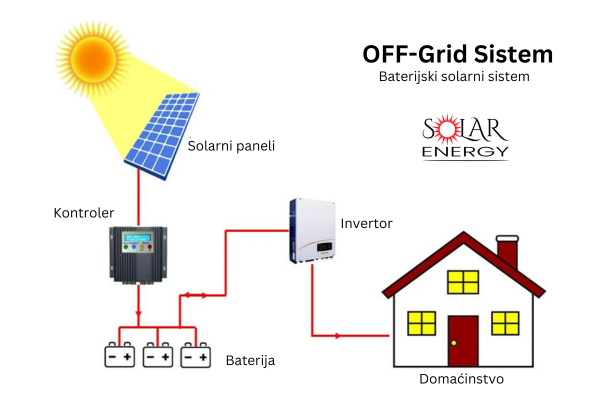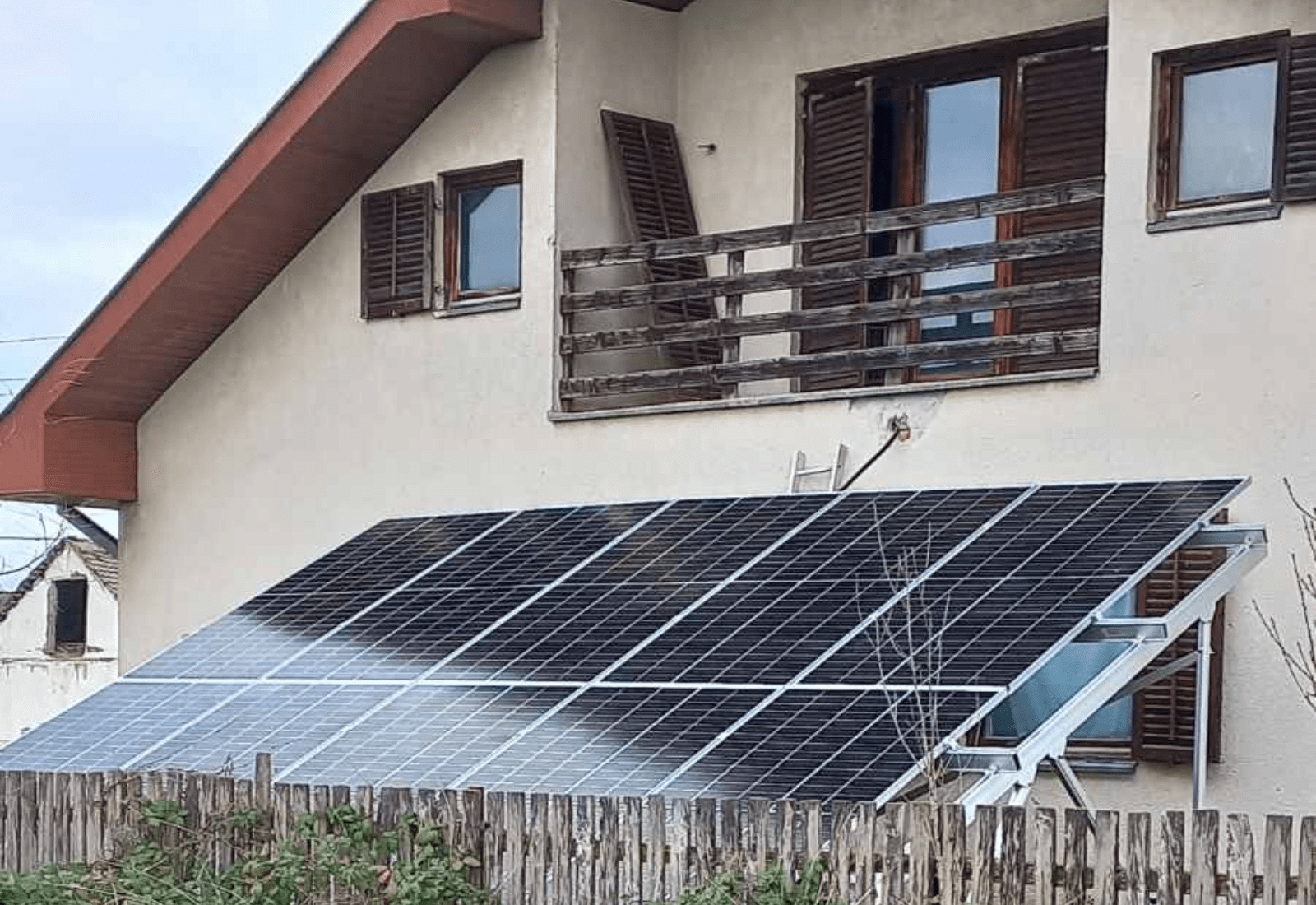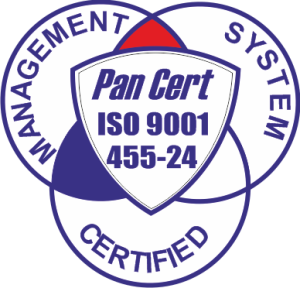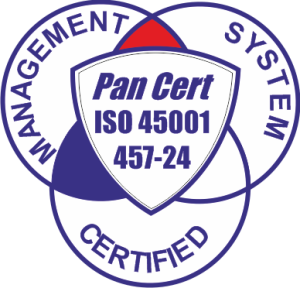
Off grid solar
systems
Off-grid, independent solar systems, or battery systems, can generate enough electrical energy to meet the needs of your facility without relying on the electrical grid. This type of system allows you to completely disconnect from the grid, but in this case, you will need a system that is powerful enough to support the individual electrical needs of your facility. The presence of a battery, in which electrical energy is stored, is essential for the functioning of such a system due to the absence of the electrical grid.

Where are battery solar systems used?
SOLARBattery-powered, independent solar systems are most commonly used in locations where there is no electrical grid or in areas prone to frequent weather-related disruptions that can cause interruptions in the operation of the electrical grid. Such systems are often employed for cottages, farms, marine vehicles, camps, homes in uninhabited or rural areas, or for emergency and crisis situations. In these cases, the installation of a battery solar system can provide the necessary electrical energy.


What are the components of a battery solar system?
The energy collected by solar panels from sunlight is directed into a battery that stores it until needed. This solar system enables full functionality of the facility and independence from the electrical grid.
Solar Panels – The most crucial component of any solar system, solar panels collect energy from the sun and convert it into electrical energy.
Charge Controller – As another essential component of every solar system, the charge controller is a device that regulates the energy produced by solar panels, preventing overload on the battery.
Batteries – Their role is to store the electrical energy generated by your solar system.
Inverter – It converts the energy coming from the batteries (DC energy) into usable energy for your needs (AC energy).
Advantages of a battery solar system?
energyThe primary advantage of this solar system is that in the event of a power outage or restrictions on electrical energy, your battery system remains completely independent because energy is stored in batteries. Installing a battery solar system in your facility would provide you with independence when it comes to energy storage. Since this system uses solar energy to charge the battery and then utilizes that energy to power devices in the facility, you would no longer have to worry about the functionality of appliances during storms, thunderstorms, power outages, or other factors that have the potential to disrupt the operation of the electrical grid by damaging power lines or increasing energy demand.
Inaccessible areas are prone to frequent power outages, posing a constant threat to the local population. Due to a lack of infrastructure, connecting to the electrical grid is very expensive and, in some cases, entirely impossible. In such regions, battery solar systems prove to be the most cost-effective option. Additionally, these systems are highly economical and environmentally friendly, just like any other solar systems.
Therefore, install green energy in a timely manner, save money, and preserve your environment.






